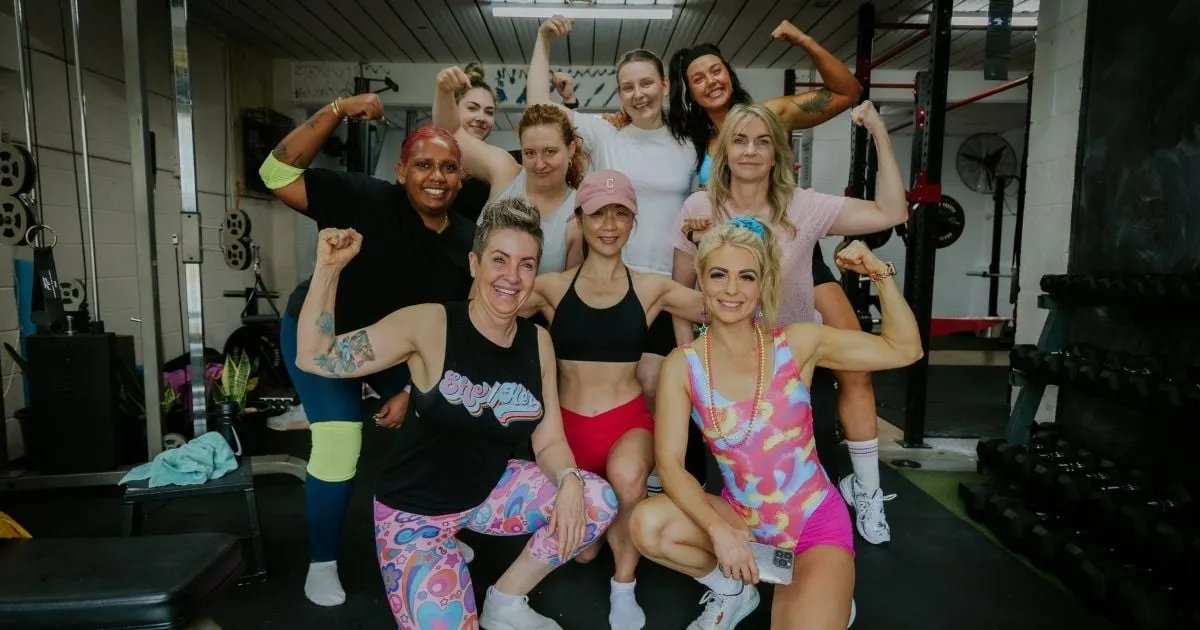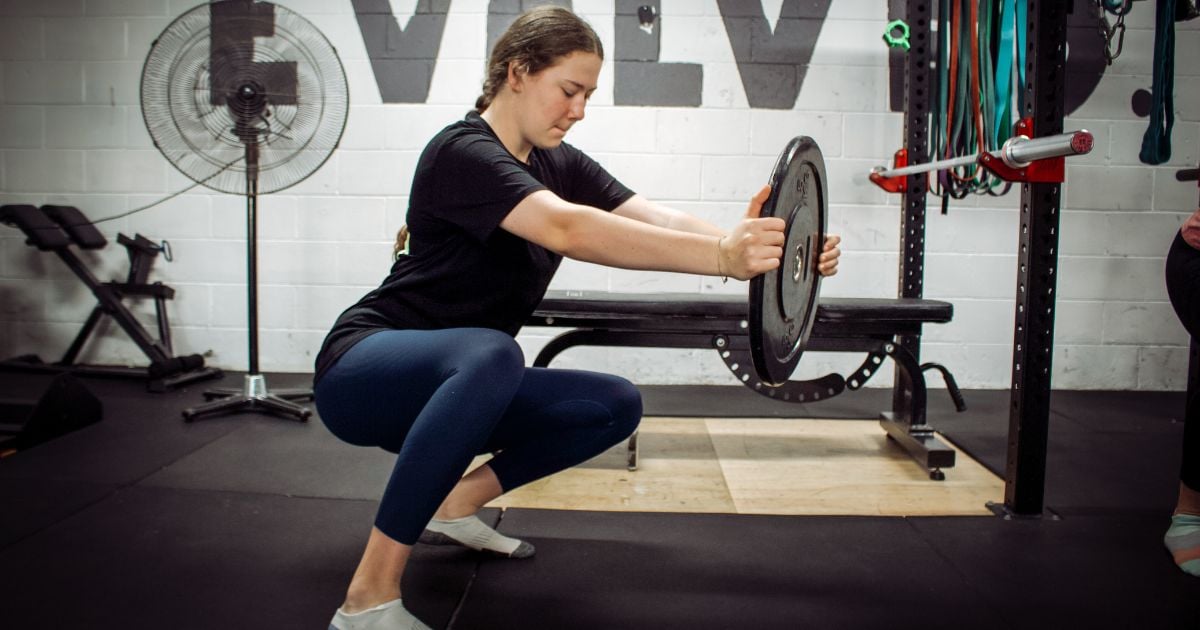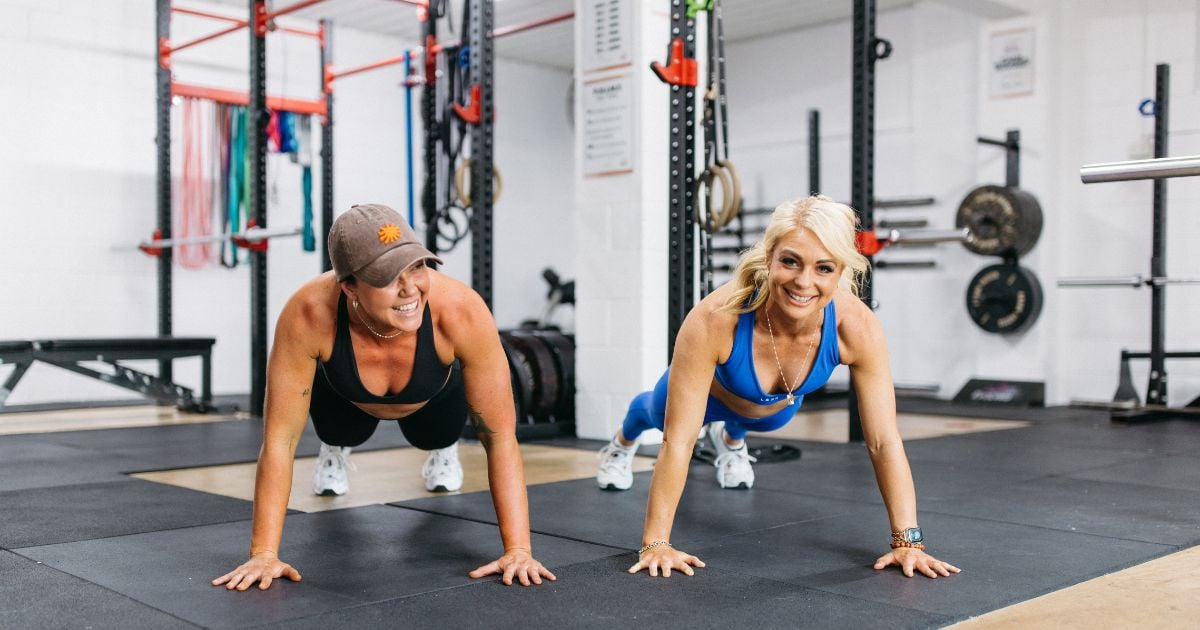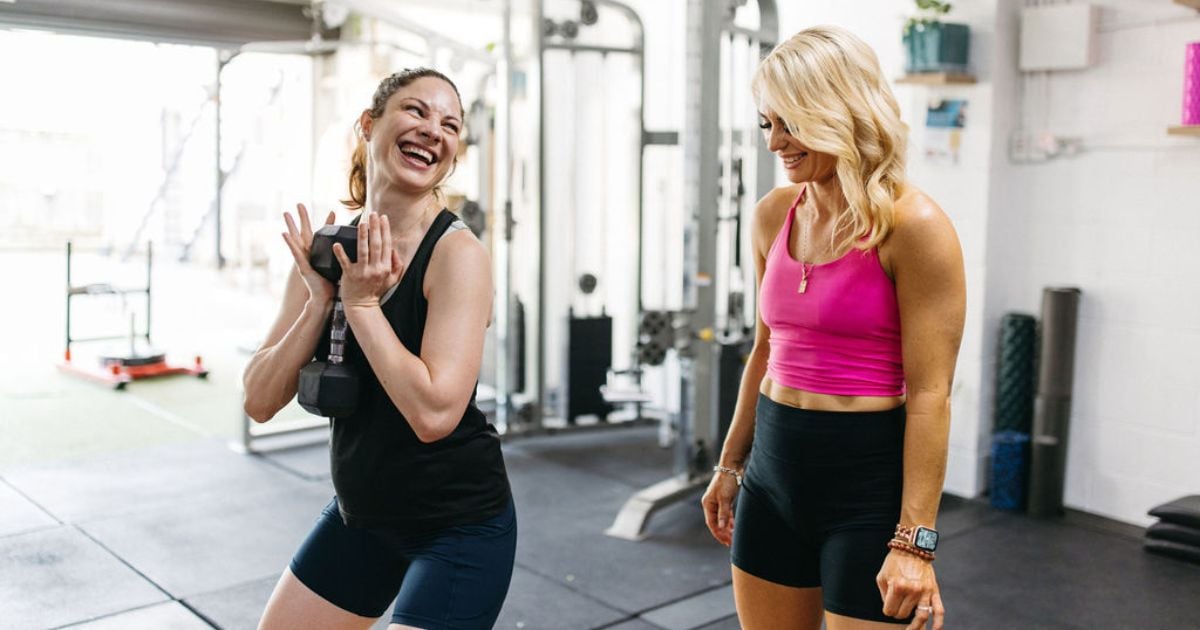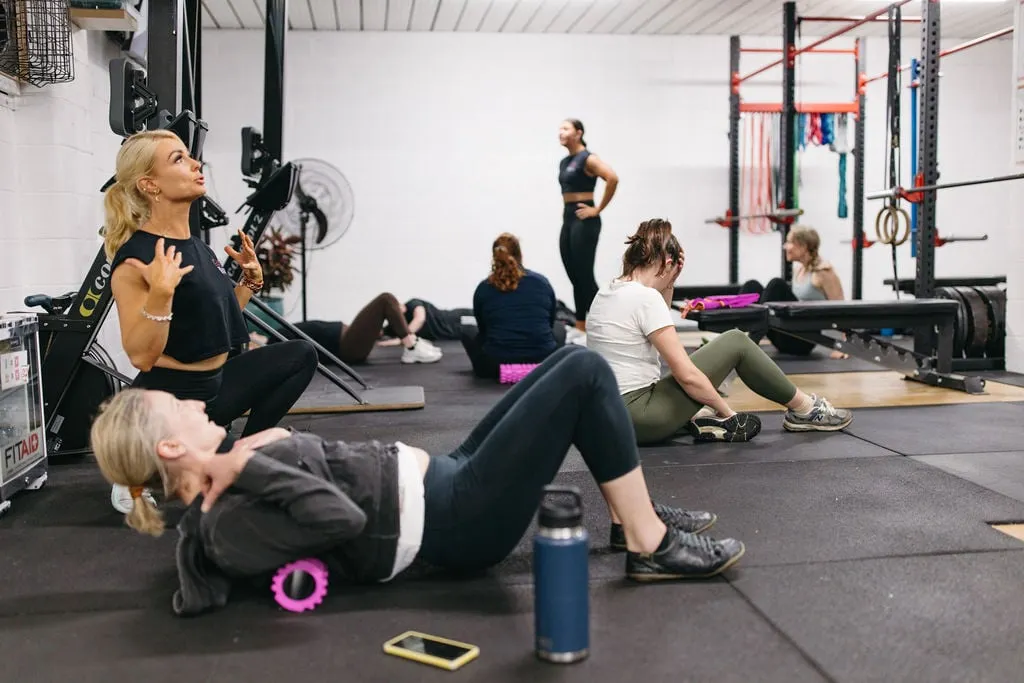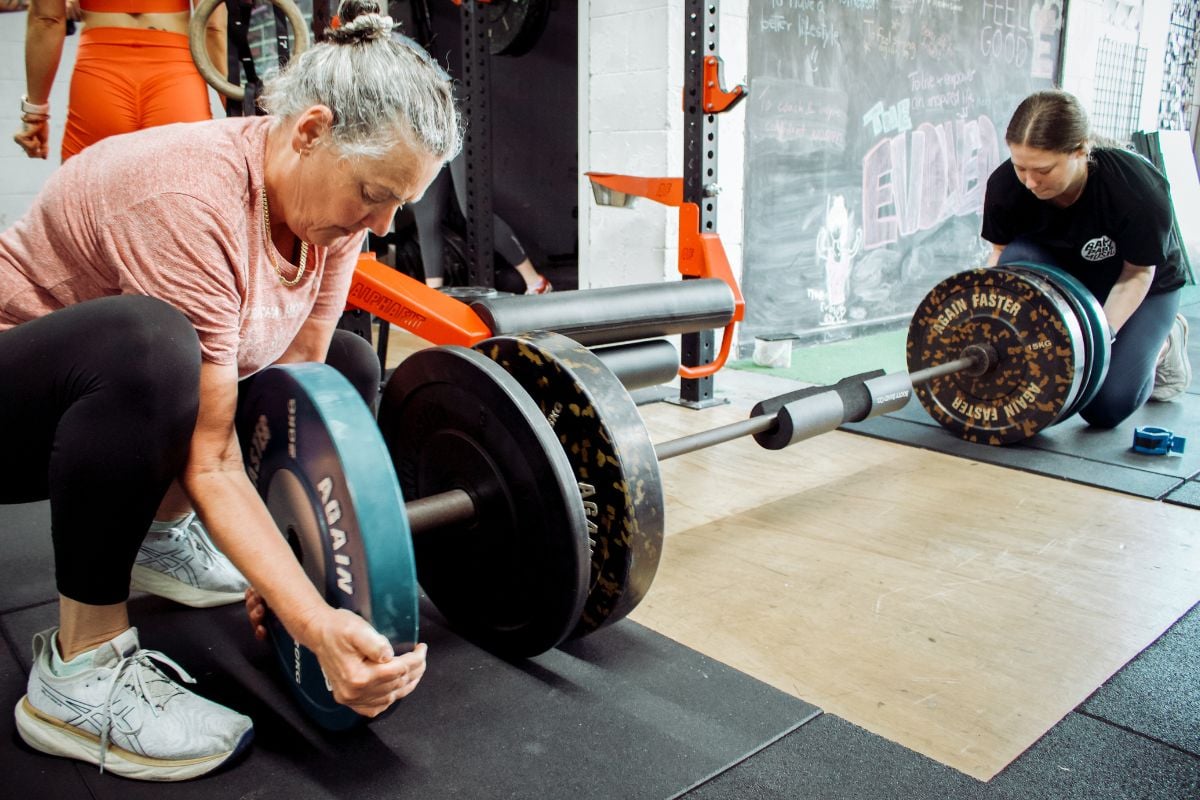Strength at Every Stage of Life: The Complete Guide for Women
Why Strength Training is the Key to a Stronger, Healthier Life
"On average, every healthy Australian woman will lose 2.5kg of muscle every decade after 30"
Whether you're a teenager, in your 20s or 30s, pregnant, peri-menopausal, or postmenopausal the number 1 goal of every fitness program should be to build muscle or slow the rate of this muscle loss.
Yet many women avoid strength training, thinking it's unnecessary or fearing they'll get bulky. The truth is that strength training is the most powerful tool for maintaining muscle, boosting metabolism, and ageing confidently.
You're Reading The Right Blog
If you've ever felt:
- Confused about how to train at your current life stage
- Frustrated with weight gain, fatigue, or feeling weaker
- Unsure if lifting weights is "right" for women
- Worried about bone density, muscle loss, or metabolism slowing down
This guide will walk you through how to train at every stage of life, what to expect, and how to maximise results for strength and longevity.
What Happens If You Ignore Strength Training?
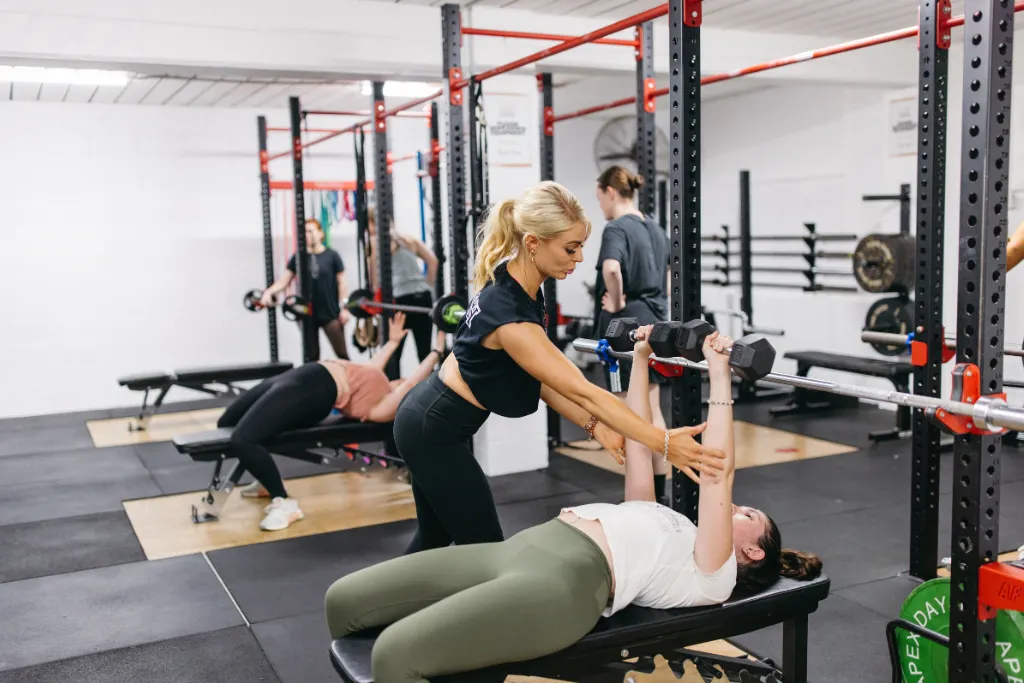
Women naturally lose muscle mass, strength, and bone density without strength training as they age.
This leads to:
- A slower metabolism → making weight management harder
- Increased risk of osteoporosis → leading to fractures and injuries
- Weaker joints and mobility issues → affecting independence later in life
- Higher body fat percentage → even if your diet hasn't changed
But here's the good news: Lifting weights can reverse these effects at ANY age.
Strength Training for Teenage Women
Why It Matters Now
Life gets busy in your teenage years between school, socialising, and part-time jobs.
It's easy to push fitness aside, but your teens are a golden opportunity to build strength, boost confidence, and create lifelong healthy habits.
We're seeing earlier health declines in young women - a trend that can be easily avoided with strength training, proper nutrition, and a balanced approach to fitness.
How to Approach Training Effectively
- Learn Proper Form Early → Mastering basic movement patterns like the squat, deadlift and bench press builds lifelong strength and injury prevention.
- Fuel Your Growth → Instead of restricting calories, focus on getting fuel from protein, healthy fats, and smart carbs to support an active lifestyle.
- Train With Your Menstrual Cycle → Some phases boost strength, while others require more recovery.
- Prioritise Recovery → Sleep is essential for muscle growth, cognitive function, and mental health.
Want to help your teen build confidence and strength for life? Check out our Ultimate Fitness & Strength Guide for Teenage Girls to get started. Read more here.
Did you know? Strength training isn’t just for the body it sharpens the mind and builds resilience. Discover how it can give teens an edge in school and life in the guide above.
Strength Training for Women Under 40
Why It Matters Now
Your 20s & 30s is the perfect time to build muscle before the age related decline of muscle sets in so you can prepare for long-term health.
Women who take the time to ingrain these habits into their lifestyle before kids, a mortgage and other 'big life goals' are achieved have a much greater chance of staying young and healthy through one of the most stressful periods of life - raising a family.
How to Approach Training Effectively
- Prioritise Progressive Overload → Increase weights, reps, or intensity every session for continued progress.
- Dial in Nutrition → Eating enough protein and whole foods keeps muscle strong and metabolism high.
- Train Smarter, Not Harder → Sync workouts with your cycle for better performance and recovery.
Want to build muscle, confidence, and gym mastery? Check out our Ultimate Strength Training Guide for Women Under 40 to get started. Read more here.
Did you know? Strength training isn’t just about fitness it enhances focus, productivity, and resilience, helping women in their 20s and 30s excel in their careers, businesses, and personal pursuits. Learn more in the guide above.
Strength Training for Pre & Postnatal Women
Why It Matters Now
Pregnancy and postpartum recovery demand strength, stability, and recovery-focused movement to keep your body resilient and pain-free.
How to Train Effectively
- Modify Strength Workouts for Pregnancy → Reduce back pain and improve endurance for labour.
- Core & Pelvic Floor Recovery → Strengthen deep core muscles before returning to heavy lifting.
- Postpartum Nutrition for Energy → Fuelling your body improves recovery, milk supply, and hormone balance.
Want to stay strong and safe through pregnancy and beyond? Check out our Complete Pre & Postnatal Fitness Guide to support your journey. Read more here.
Did you know? Strength training isn’t just about fitness it helps mums stay strong, energised, and resilient, so they can thrive through pregnancy, postpartum, and beyond. Click through and learn more with the guide above.
Strength Training for Women in Peri-menopause
Why It Matters Now
Hormonal changes in your 40s can cause muscle loss, weight gain, and fatigue—but lifting weights can prevent these issues.
How to Train Effectively
- Lift Heavy to Maintain Muscle → Prioritise compound lifts and progressive overload.
- Balance Hormones Naturally → Strength training improves insulin sensitivity and stress resilience.
- Protein Becomes a Priority → Eating at least 1.2-1.6g per kg of body weight helps prevent muscle loss.
Want to stay strong, energised, and balanced in your 40s? Check out our Peri-menopause Strength & Wellness Guide to train, eat, and feel your best. Read more here.
Did you know? Strength training is one of the best ways to prepare your body for menopause, helping you maintain muscle, balance hormones, and stay energised for the years ahead. Discover how to get ahead of these changes with the guide above
Strength Training for Women Post-menopause
Why It Matters Now
After menopause, Muscle and bone loss accelerates, increasing the risk of osteoporosis and mobility issues.
How to Train Effectively
- Prioritise Heavy Resistance Training → Lifting weights strengthens bones and reduces fall risk.
- Adopt an Anti-Inflammatory Diet → Support joint health with omega-3s, protein, and antioxidants.
- Stay Active Daily → Strength training + walking is the best longevity formula.
Want to stay strong, healthy, and independent after 50? Check out our Post-Menopause Guide to Strength, Bone Health & Longevity. Read more here.
Did you know? Strength training after menopause helps protect bone density, boost energy, and keep you strong, independent, and thriving for years to come. Click through on the link above and learn more.
Busting Myths About Strength Training for Women
"Lifting weights makes women bulky." → No. It tones, sculpts, and boosts metabolism.
"Cardio is better for weight loss." → No. Strength training burns more fat over a long time.
"It's too late to start lifting." → No. Women in their 60s, 70s, and 80s see massive benefits.
Learn more about strength training myths here.
Ready to Get Stronger?
Strength is your greatest tool for longevity, confidence, and overall health. It's never too early or too late to start.
Want expert coaching tailored to your life stage? Join The Evolved Gym & start your strength journey today.

